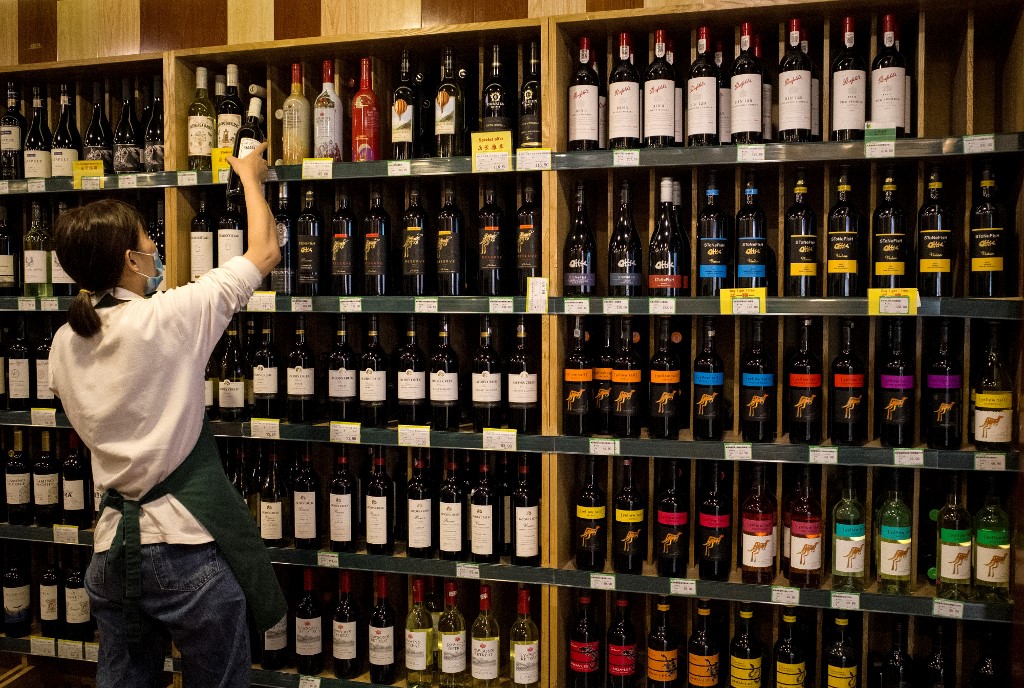News that China plans to launch a probe into Australian wine imports coincides with calls for the Morrison government to clamp down on Chinese spying on a navy shipbuilding facility near Adelaide.
Australia’s Defence Department said recently that foreign agents were “highly active” in the country and that they are concerned about the “extreme” threat to key projects in South Australia, where tens of billions of dollars will be spent building submarines and warships over the next decade.
Politicians from all sides of the political spectrum have suggested that the Chinese consulate opened in Adelaide four years ago is way “oversized”, given the city’s relatively small population (1.3 million), and they believe that Beijing is mainly interested in the A$90 billion shipbuilding project in that area.
Rex Patrick, an independent senator for South Australia, is a key figure who has called for the Chinese consulate in Adelaide to be closed.
Others, such as South Australian Labor MP Nick Champion, are pressing the government in Canberra to negotiate with Chinese officials to get the number of staff in the consulate reduced. The consulate facility also houses the headquarters of the Overseas Chinese Association.
“It’s clear that the numbers in the Adelaide consulate are overweight – they should be reduced, preferably by negotiation,” Champion told the ABC.
Billion-dollar wine trade at risk
Some analysts believe news that China will investigate the “dumping” of Australian wine imports is a warning to Canberra not to follow the US example – closing its consulate in Houston – or its significant wine exports to China could be at risk.
Relations between Beijing and Canberra have nosedived since April when Australian Prime Minister Scott Morrison joined US calls for an independent inquiry into the coronavirus pandemic, which was first detected in the city of Wuhan late last year.
China – Australia’s biggest trade partner – has since threatened economic blowback on a range of Australian goods including beef and barley, as well as tourism and higher education.
The Chinese Ministry of Commerce said in a statement it would investigate dumping – when a country sells goods in a country for less than it costs at home – throughout 2019, at the request of the Wine Industry Association of China.
Wine exports to China hit a record A$1.25 billion (US$900 million) last year, according to Australian government data, making it the biggest market by value for the product.
Australia said it would work with local wine producers to defend the industry against the claims, saying it was second only to New Zealand as the least-subsidised globally.
“While we respect the right of any nation to defend their domestic producers from unfair and uncompetitive trade practices, we reject any claim that Australian wine product has been ‘dumped’ into China,” agriculture minister David Littleproud said in a statement.
China’s ambassador to Australia warned earlier this year it could take such measures.
“The Chinese public is frustrated, dismayed and disappointed with what Australia is doing now,” Cheng Jingye told the Australian Financial Review in April. “Maybe the ordinary people will say ‘Why should we drink Australian wine? Eat Australian beef?'”
In May, China suspended imports of beef from four Australian slaughterhouses and imposed 80% tariffs on Australian barley imports.
Beijing has also warned Chinese citizens not to visit Australia for study or tourism purposes, alleging anti-Asian racism in the wake of the coronavirus.
The moves were widely seen as retaliation for Canberra’s calls for an independent investigation into the origin of the coronavirus outbreak.
But the two countries were already at loggerheads after Australia hit China with huge anti-dumping levies on several products including aluminium and steel.
Beijing has also been riled by a decision to ban controversial telecoms giant Huawei from building Australia’s 5G network, while Canberra has protested China’s arrest of Chinese-Australian writer Yang Jun on spying allegations.
Shares in major Australian winemaker Treasury Wine Estates, which owns the popular Penfolds and Lindeman’s brands, dropped more than 13% in Sydney.
With reporting by AFP
























